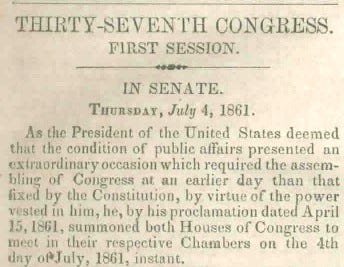A Historic Moment
July 2022 Imperfect Union
I spend most of my time writing about historic figures. Sometimes we ask ourselves, “did they know they were making history? Or were they too busy with daily lives to see the bigger picture?” Sometimes they didn’t. But my main characters (George Washington, John Adams, Thomas Jefferson, etc.) knew their actions mattered. They knew they were living through historic moments. They knew their actions would change the world and they knew their choices would be documented in the history books. I can say, with complete certainty, we are living through one such moment.
I’ve watched every single minute of the January 6 Committee hearings. I’ll be completely honest; they’ve blown me away. I wasn’t expecting them to reveal much, change minds, or impress. Maybe I had become too cynical about politics. Or maybe the committee is just acting so very differently than most politicians these days.
They aren’t showboating, they aren’t campaigning, they aren’t bolstering their own reputations. They have presented a clear story, revealed overwhelming evidence, and relied almost entirely on Republican voices to do so.
As I’ve been watching and digesting the material, I’ve also been taking notes and writing Twitter thread summaries. It’s a lot of time and effort, and sometimes it’s pretty draining. This material is not fluffy. But I have the privilege and energy to write recaps, so it feels like a contribution I can make. A tiny one of course, but if I can make the information accessible to more people, I think its my obligation to do so.
I know not everyone has the time, flexibility, or even bandwidth to watch hours and hours of hearings. But I think everyone should have the opportunity to learn about the hearings. There is no excuse for ignorance at this moment.
If you’d like to catch up, here are my recap threads. You don’t need an account to read them.
Hearing 1:
Hearing 2:
Hearing 3:
Hearing 4:
Hearing 5:
Hearing 6:
Hearing 7:
I will continue to write and post these threads as long as I am able to do so.
Much like the framers, writing about the significance of the Revolutionary War and the Founding Era, the Committee appears to have a clear eye to its place in history. They frequently call upon the wisdom of former greats. Earlier this week, Representative Jamie Raskin quoted Lincoln:
“American democracy is a precious inheritance. Constitutional democracy is the silver frame upon which the golden apple of freedom rests.”
After hearing this quote, I wondered what Lincoln had to say about July 4. I was not feeling particularly celebratory this year and I heard from a lot of you that you felt the same. Last month, I wrote about how Lincoln was an optimist because he didn’t see the point in being otherwise. So, I couldn’t help but wonder, what did he have to say on the July 4ths that fell during the war? Did he retain his optimism? Was he morose? Was he angry?
I think he was all the above. He retained his belief that the Union would survive. He was angry at the threats to its safety. He was sad that American citizens had so badly fractured their bonds of friendship. And he left us with some highly prescient words for July 2022.
These passages came from his address to Congress on July 4, 1861. In the spring of 1861, Lincoln had selected to take decisive action after the Confederate forces fired on Fort Sumter in South Carolina. He engaged in warfare without Congress’s permission and used the opportunity to explain and defend his actions. He also put the conflict in historical context and explained the bigger principles behind the violence.
“It presents to the whole family of man the question whether a constitutional republic, or democracy--a government of the people by the same people--can or can not maintain its territorial integrity against its own domestic foes. It presents the question whether discontented individuals, too few in numbers to control administration according to organic law in any case, can always, upon the pretenses made in this case, or on any other pretenses, or arbitrarily without any pretense, break up their government, and thus practically put an end to free government upon the earth. It forces us to ask, Is there in all republics this inherent and fatal weakness? Must a government of necessity be too strong for the liberties of its own people, or too weak to maintain its own existence?”
I should acknowledge that there is pretty much a Lincoln quote for any occasion, but seriously, these passages could have been written on January 7. I usually try not to include huge block quotes or several in a row, but I hope you’ll forgive me today. I do not have the hubris to think I could possibly summarize Lincoln better than his own words.
“Our popular Government has often been called an experiment. Two points in it our people have already settled--the successful establishing and the successful administering of it. One still remains--its successful maintenance against a formidable internal attempt to overthrow it. It is now for them to demonstrate to the world that those who can fairly carry an election can also suppress a rebellion; that ballots are the rightful and peaceful successors of bullets, and that when ballots have fairly and constitutionally decided there can be no successful appeal back to bullets; that there can be no successful appeal except to ballots themselves at succeeding elections. Such will be a great lesson of peace, teaching men that what they can not take by an election neither can they take it by a war; teaching all the folly of being the beginners of a war.”
– Abraham Lincoln, July 4, 1861
Draft of Lincoln’s speech. Library of Congress.
It was a worthy fight then. It is a worthy fight now. Let’s keep at it.

